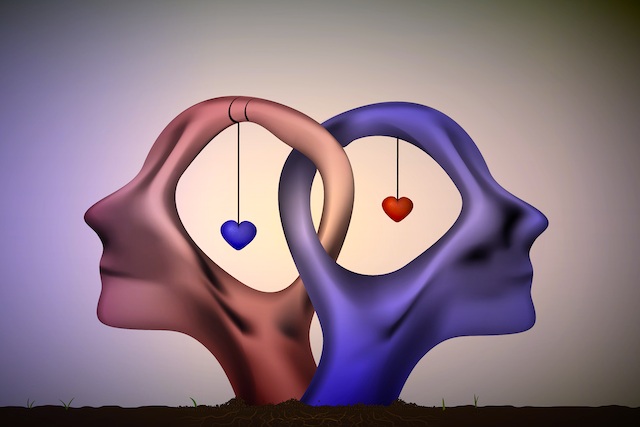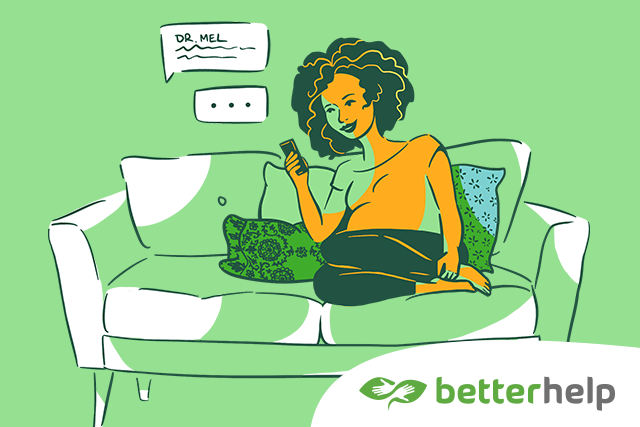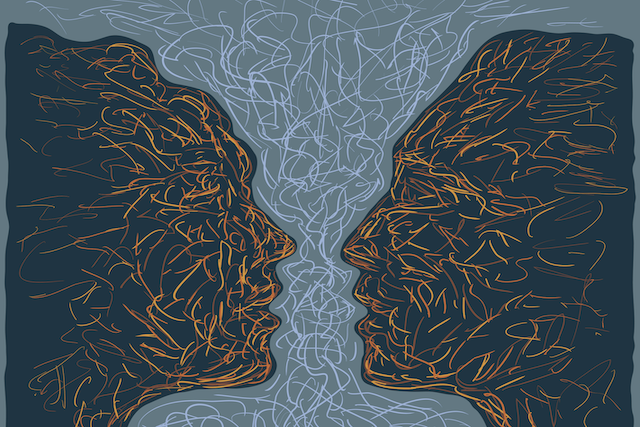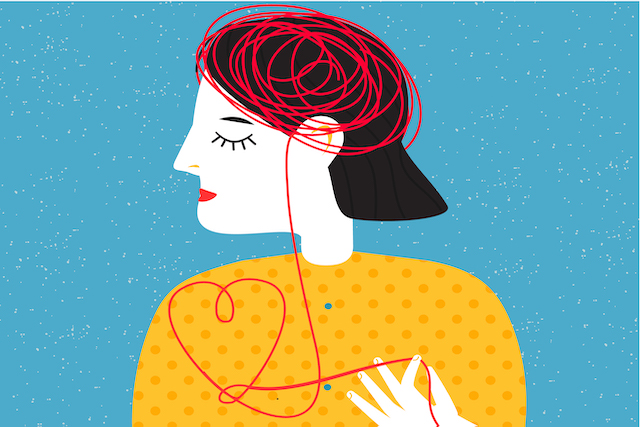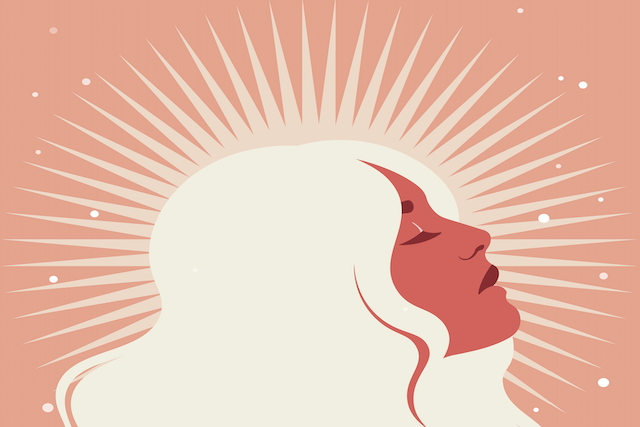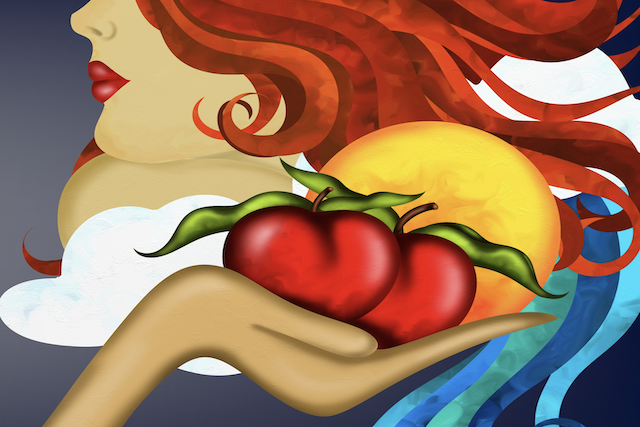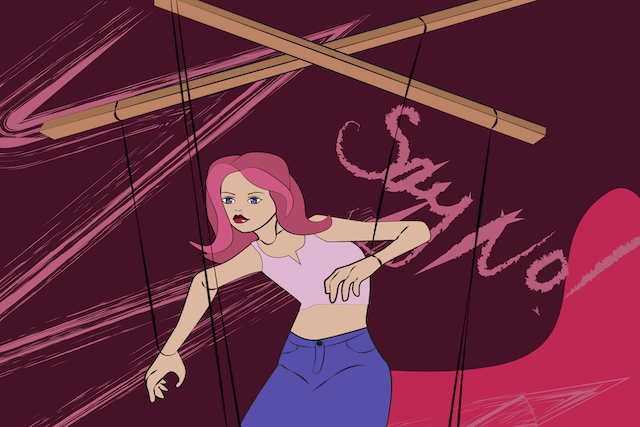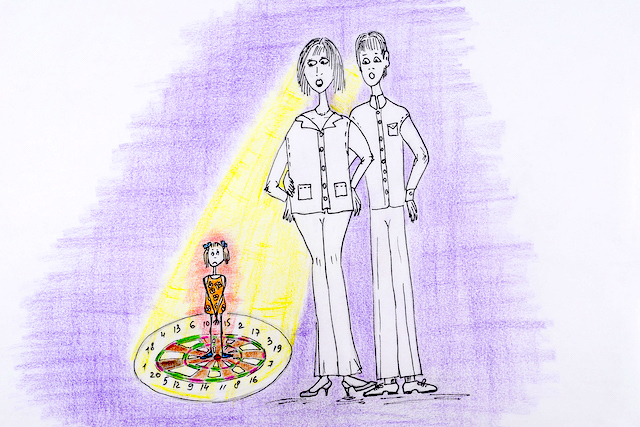
“When you finally learn that a person’s behavior has more to do with their own internal struggle than you, you learn grace.” ~Allison Aars
I’m writing this to say thank you for the trauma you caused me since I was born. You might be thinking that I’m being sarcastic, but that’s far from the truth.
Let me explain why I have such gratitude for the pain and trauma you created in my life. Also, please understand that I forgive you.
Dad, I want to start with you because you’re no longer living. I know you’re now able to see the pain you caused.
When I witnessed the violence between you and mom, it caused years of anxiety and depression. I was no longer able to have friends at our house for fear violence and your drunken, angry rages might happen again.
That caused me difficulty in making friends, and that stayed with me for many years. It also taught me to pretend everything was okay and that we had a “good” family. I learned to live a lie.
Your depression made me believe there was something wrong with me. I thought I was the reason you rarely wanted to be around us. I falsely learned I was unlovable.
Your portrayal of being the victim in all of life’s situations taught me that others are always to blame for anything that goes wrong in life. Your self-hatred taught me to hate myself too.
The explosions of anger taught me that’s how you handle life. For years, I blew up on people when I was angry, then pretended it never happened. That cost me romantic and friend relationships for many years.
The embarrassment of your drunk episodes in public caused me a tremendous amount of shame. Not until I got much older, did I realize I shouldn’t be ashamed of something I had no control over.
Your absence throughout my teenage years resulted in seeking negative, unhealthy attention from men. When you attempted a return in my early twenties, you shamed me for being emotionally and physically scared of you.
Every new friendship or romantic relationship I had brought such dread. I knew at some point I’d be asked about my family.
Since I was emotionally unhealthy, I attracted unhealthy people. So, explaining how my alcoholic father wasn’t in my life was never received well.
The shame I had was only increased as I was told, “that’s your father. You should forgive him. Let him be in your life.”
Oh, how that brings up such sadness. I think about all the times I attempted to reconnect with you throughout my twenties. Each time I had high hopes that you’d changed, only to be let down further each time.
To say I had “Daddy Issues” was putting it lightly. Those “Daddy Issues” showed up in very harmful ways. I struggled with men in authority in work environments because of you. I don’t even have to mention again how much you affected my dating life.
Now, it’s time to address Mom and the trauma she caused. Also, I’m going to tell you how the two of you as a unit, also caused a lot of my trauma.
Mom, I have so much to say about the deep, emotional pain you caused and continue to cause. I used to think many of my struggles were a result of Dad. The older I get, the more I realize you’re responsible for more of my pain than Dad ever was.
Since I was just talking about the trauma Dad caused me, let’s talk about how you handled that. You taught me to pretend bad things never happened. Pretend everything is okay and no matter what, never talk about it.
The fear, shame, depression, and anxiety that caused was more than any child should ever endure. Not only that, but when I told you I was depressed as a young teen, you belittled me. Your response was that I had nothing to be depressed about and “to get over myself.”
All of that was incredibly painful, but there’s much more. Your inability to love me and show me affection was the biggest pain of all. Still to this day, even after having done so much healing, I’m still uncomfortable if somebody tries to hug me, other than my husband or baby.
You taught me to never show others that life is hard. Instead, act like we have a good life and that we’re the perfect family. I cringe just even typing that because it’s far from the truth.
As you know, because I’ve told you many times, marrying the man you chose after the divorce was also incredibly traumatic. Your happiness was your priority, not me.
I was a teenager. I still needed my mom, even though we had our issues. It appeared that I was tossed aside for him. You gave up on me. I was free to do anything I wanted to do because you were occupied with him.
I thought that was so much fun. Looking back, I realize how unhealthy and out of control I was. I had no rules and could do anything I wanted, and I did.
I’m still amazed that you married another alcoholic, but you refuse to acknowledge that. On top of that, he despises me and your entire family. I still remember having to load my little nieces up in their pajamas with no shoes to escape one of his childish tantrums aimed at them.
I could go on about my major life events you chose to miss because of him. As I mentioned, he made it clear that he hated me. I even remember you saying, “If you ever make me choose between him or you, I will always choose him.”
That still brings such sadness and pain. Being a mother now, I can’t imagine any circumstance where I’d choose anybody over my child. However, I see how different we are.
Mom and Dad, it’s now time to talk about how your unhealthy, dysfunctional marriage caused such pain. I never saw love between you.
What I saw was the two of you growing further and further away from each other. I saw that neither of you attempted any healing or got me help for the trauma you created.
Instead, we were supposed to ignore all the bad stuff. Never talk about it, no matter what. When I attempted to talk about my struggles and feelings, I was labeled as “dramatic” and “ridiculous.”
Healthy love and healthy relationships are two of the most important things parents should teach their children. Yes, I’m aware that very few parents actually do that.
That gets me to the gratitude I have for you both. The trauma you created is something in which I’ll forever be thankful.
Yes, you wouldn’t think that based on all that I have written thus far. I’m just asking that you bear with me.
For years, I was an angry person and mad at the world. Underneath that anger was depression and a belief that I was unlovable, not good enough for anything.
Due to my childhood trauma, I needed deep healing and years of therapy. I started that in my late twenties.
That process took me several long, hard years. I’m so grateful for the pain you caused. Also, your never getting help gave me guidance in how to do things differently.
The generational trauma has stopped with me. I will not pass on the behaviors that you both taught me.
As I continue my healing work, I can easily see the pain that both of you endured. I know that pain resulted in your hurting me. So, I’ll address you both individually for that.
Dad, I have such love and compassion for you. I know your father was an incredibly abusive alcoholic. He put so much of his not good enough stuff, those feelings of never being good enough, on you, which left you swimming in your insecurities.
I am pretty certain that your father hated himself. That’s probably how you learned to hate yourself, as I did from you.
When I think about your true soul identity, I see a soul with such love. Your true soul was kind and loving.
I remember you driving a girl home on my soccer team that you coached. It was always seemed odd that you dropped me off at home before taking her home.
Now, I know why. She lived in a dangerous area for us to be in, especially at night. The only way she could play soccer was if she had transportation.
You risked yourself driving her home but made sure I was safe. I know I have your loving nature. I love that about myself.
The reason you were an alcoholic was your own childhood. Sadly, you didn’t learn a better way. You repeated what you were shown.
It may seem odd but thank you for the life you chose resulting in my “daddy issues.” That was a beautiful gift that I needed.
Without that, I wouldn’t have married a loving, emotionally healthy man. Also, I wouldn’t have started my healing journey. Self-love would’ve never existed.
As for the childhood trauma you had, I know now you’re at peace. I know you’re proud of what I’m doing in life to heal the generational trauma you left and helping others do the same with my work. Just know the generational trauma will not continue.
Mom, it’s taken a lot more time to have gratitude for the emotional pain you caused. That’s probably because that pain is more recent and still occurs.
However, I now see the reasons you did all you did and continue to do. Acknowledging reality would be too much for you. You would crumble.
Also, I’m aware that your mother was unable to nurture and show you affection. You truly didn’t know how to love me in a healthy way.
I know that you’re not well emotionally. For that, I have such love and compassion. I’ve been there. It’s miserable.
Mom, I also know that you were taught that your image was the most important thing in life. Your behaviors to “protect” your image were simply your way of trying to prove to yourself and others that you were happy.
Due to the trauma, I had from both of you, I was able to learn how to create a life I truly love. Seeing both of you being so miserable showed me that I wanted more for myself.
The pain you two caused resulted in many beautiful things for me. The two things I’m most proud of in my life are results of learning to do things in a different way than I was shown.
Finding an emotionally available, loving, supportive husband was one of my biggest struggles. Fortunately, you two gave me a blueprint for what I didn’t want.
Many people follow in their parents’ footsteps when choosing a partner. Since the two of you showed me how an unhealthy marriage can destroy your life, I did a lot of healing before deciding to marry.
My gratitude for the emotional pain I endured from you two, led me to a promise to myself. I’d never have a child until I was in a good place with the ability to be a loving, nurturing, emotionally available mother.
Without that pain, I’d have never known how to meet my child’s emotional needs. There would’ve been no knowledge of what my baby needs from me.
For me, that’s the most beautiful gift you could have given me. Raising a baby who experiences unconditional love, acceptance and nurturing ends that generational trauma.
Yes, there are times where intense sadness and anger still pop up. However, I’ll continue to do my healing work that allows me to come back to this place of gratitude for you both.
So, hopefully you both see how much love and gratitude I have for you. At your soul levels, I know you have love for me. Showing that was not easy for either of you. Being lost in your own traumas meant you had no clue how to heal.
I truly thank you for creating the pain that led me to this beautiful life. Not only was I able to heal, but I’m now able to pass that on to the world through the work I do and raising my baby.
It’s taken me many years to say and truly mean this, but I wish you both peace and love. You both deserve that.
I know that neither of you intentionally caused me such pain. Also, apologies aren’t something either of you’ve ever been capable of giving.
That’s okay. Again, I know your own trauma prevents that. I forgive you anyway.
In conclusion, I love you both. Thank you for all you put me through because I now have a wonderful, happy life. That’s not something many can say.
Thank you for the hard lessons. Thank you for creating me. Thank you for being who you were or weren’t to me.
That was needed for me to now sit here with love in my heart for you. Forgiveness and gratitude are two things you both deserve.
Love,
Mary Beth
![]()
About Mary Beth
Mary Beth is a licensed professional counselor and mental health blogger. She guides readers through healing feelings of never being good enough that were created in childhood. Learn more here. She helps readers understand and heal their Not Good Enough Stuff, never feeling good enough, to create a life of peace. Mary Beth writes about boundaries, inner child, relationships and generational trauma. Check out her topics here and visit Not Good Enough Stuff here.
Get in the conversation! Click here to leave a comment on the site.
The post Dear Mom and Dad, Thank You for the Years of Trauma appeared first on Tiny Buddha.
from Tiny Buddha https://ift.tt/lT1rfDGH4

